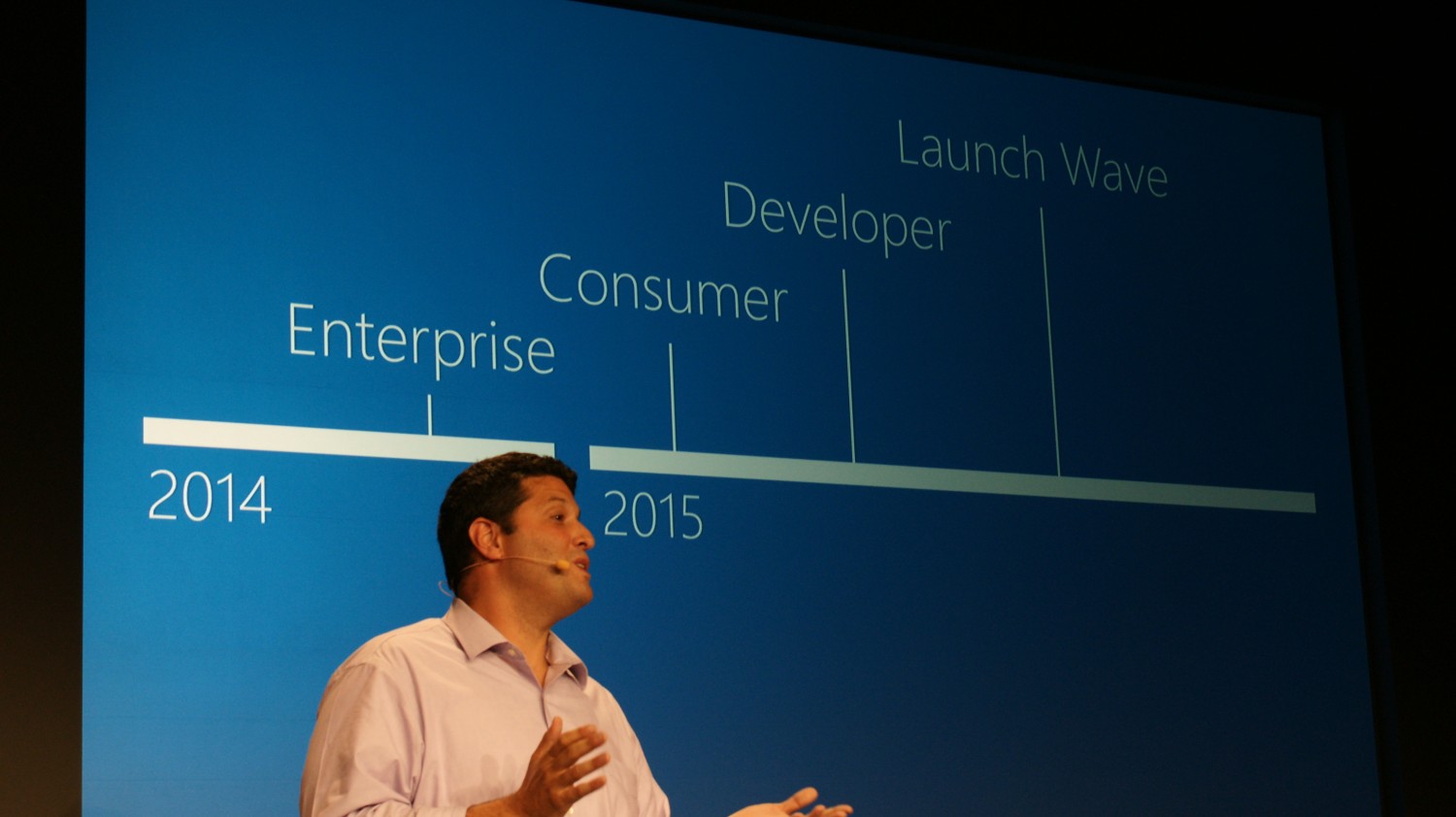Microsoft tells all about its upcoming 6+1 Windows 10 Editions
Of all choices Microsoft has, for finally announcing the official line-up of the upcoming Windows 10 editions, Microsoft’s latest hire of 2014, Corporate Vice President of Windows and Search Marketing, Tony Prophet, appears to be the most fitting, as his corporate profile suggests, Prophet is not only in charge of marketing for Windows and Search, he also oversees pricing structures for Windows products.

In a recent post on Windows’s official blog, Prophet gives us the low-down on all editions of Windows 10 we can expect to be soon commercially available.
A total of 7 editions will be available for consumers and corporate customers. 6 will run on a variety of consumer/industry devices, from smartphones, tablets and PCs, to industrial/retail devices, like cash registers, and robotic equipment.
A seventh edition will power smaller, simpler Internet of Things devices, like routers, gateways and lightweight web servers.
Windows 10 for consumers
Windows 10 Home Edition will be the base version that most consumers will run on their laptops, desktop PCs, tablets and 2-in-1 devices. Windows Hello will be part of the Windows 10 Home Edition as well, and will support Windows Hello biometric recognition, which includes face, iris and fingerprint recognition, for login access. Xbox Live will also be part of Windows 10 Home Edition, as well as all versions of Windows 10 running on desktop/laptop devices.
Windows 10 on the go
Microsoft has recently announced the official brand for Windows 10 for Phones which will be known henceforth as Windows Mobile. Windows Mobile will support Continuum, which means, users of Windows Mobile phones and tablets, will be able to connect their devices to an external screen, and use them in a similar way as they would on their PCs.
An eye on small business
Windows 10 Pro Edition is reminiscent of the Ultimate edition in Windows 7, and offers access to Windows Store for Business, as well as support for small businesses and enterprises who are planning on adopting CYOD programs, where employees and associates will access IT company resources from their own devices. Enhanced access to cloud services and mobile productivity will also be part of the Windows 10 Pro Edition experience.
In regard to Windows 10 Pro Edition, Tony Prophet also reiterates: “...As we announced earlier this year, for the first time ever, we are offering the full versions of Windows 10 Home, Windows 10 Mobile and Windows 10 Pro as a free and easy upgrade for qualifying Windows 7, Windows 8.1 and Windows Phone 8.1 devices that upgrade in the first year after launch.** Once you upgrade, you have Windows 10 for free on that device.”
Desktop and Mobile Enterprise
There has been much talk about Windows 10 Enterprise edition, which is built on a Windows 10 Pro foundation, and just like it, Windows 10 Enterprise will offer access to Windows Store for Business, and an enterprise-only Windows Update channel, where IT administrators will be able to decide which device will have priority for updates, within the organization, and when updates should be scheduled, so as to avoid conflict with ongoing tasks.
Windows 10 Mobile Enterprise will be a somehow separate edition from Windows 10 Enterprise, geared towards smartphones and small tablets.
Educational licensing
Windows 10 Education is designed to meet the needs of school staff and students, and will be offered through Academic Volume Licensing, similarly to previous Student versions of Window 8.1 and Windows 7.
Internet of Things
Windows 10 IoT Core, is a simplified version of Windows 10, designed for smaller, simpler devices, such as routers, as previously mentioned, and simple robotic devices. There has been no mention on pricing for Windows 10 IoT Core, which we assume will remain free to developers of Raspberry Pi, Arduino and similar kit applications.
Final thoughts
While plenty more light has now been shed on the different editions and licensing planned for Windows 10, some unknowns remain, particularly about how Microsoft will handle upgrades from OEM versions of Windows, purchased by system builders, and whether they will qualify for a free upgrade. According to information released on the Windows Insiders Community, OEM users will be able to upgrade, however in some cases a complete reinstall might be required to verify the authenticity of an OEM Windows license.